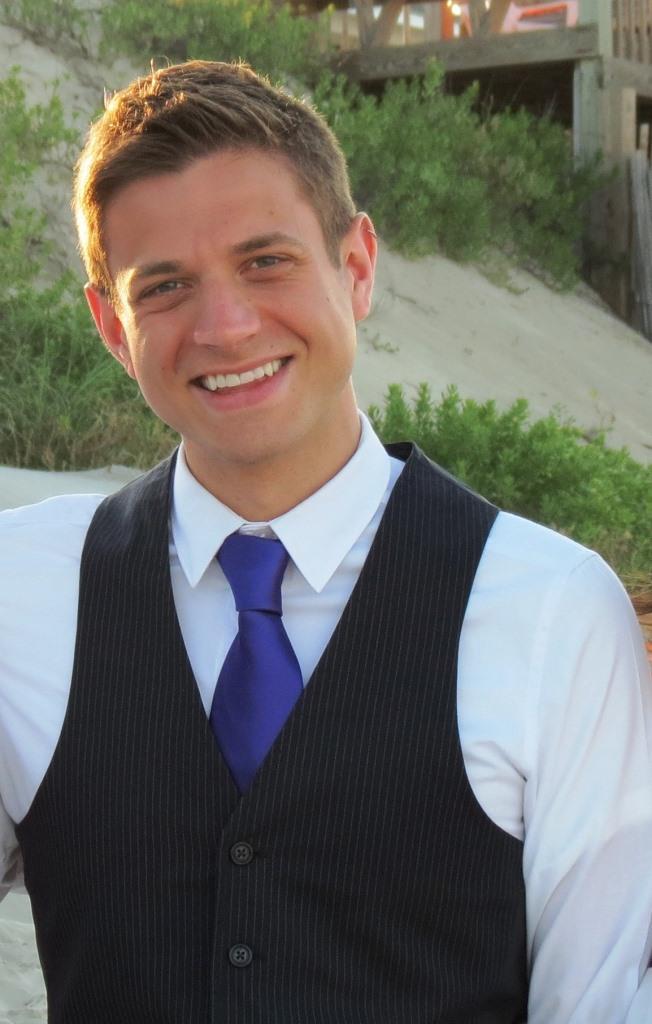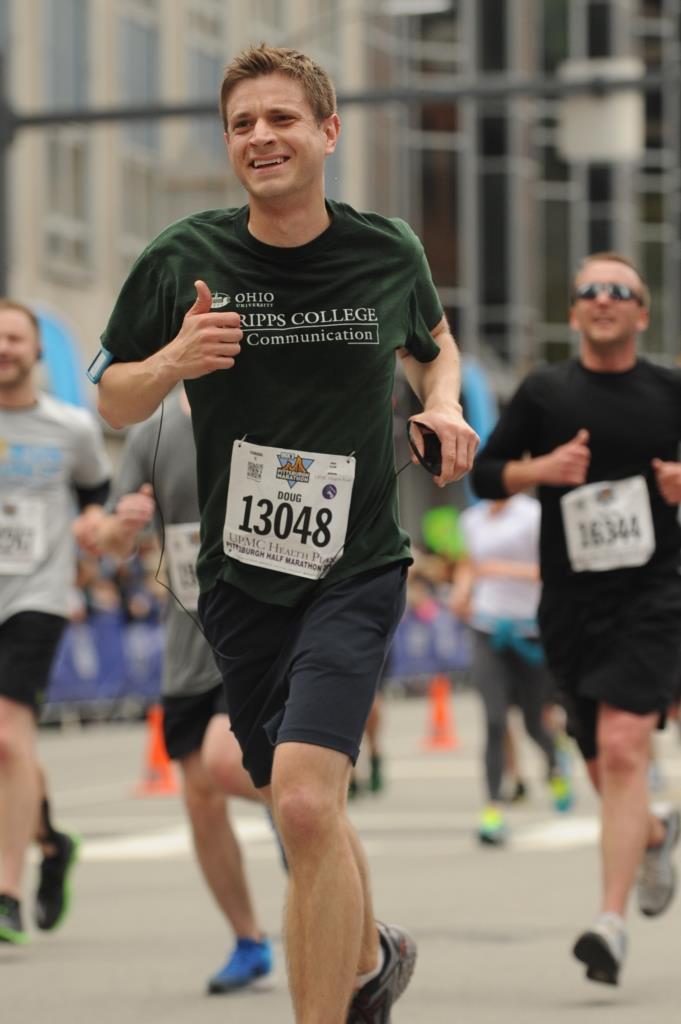Assistant Professor Doug Cloud, Composition Program Faculty: B.S. magna cum laude, Journalism, Ohio University. M.A. and Ph.D., Rhetoric, Carnegie Mellon University.
Professor Cloud teaches courses in rhetorical and composition theory, style, public writing, and argument. His research focuses on the rhetoric of social change, particularly the representation of marginalized group identities in public discourse. His current projects concern the use of identity categories in environmental discourse and the ways that language practices of marginalized groups are adapted and translated for new contexts. His work has appeared in Argumentation and Advocacy and Language in Society. He is a Founding Editor Emeritus at The Silver Tongue, a rhetoric and public affairs blog (www.silvertonguetimes.com).
 Faculty Profile: Doug Cloud
Faculty Profile: Doug Cloud
by Tim Mahoney
This semester, I had the opportunity to sit down with Dr. Doug Cloud, a new addition to the English Department, in his office in Ingersoll Hall, where many of the Liberal Arts faculty have moved while Eddy is being renovated. I am currently taking his Principles of Writing and Rhetoric course, and although I see him every Tuesday and Thursday, it was a nice change of pace to speak with him about his research and work.
What are you currently reading?
I am currently reading Lev Grossman’s Magician series. They are kind of like a grown up Harry Potter, but that’s an oversimplification. I recently finished Vincent Bugliosi’s Reclaiming History: The Assassination of President John F. Kennedy. That was one of the most interesting books I’ve ever read. I’m also reading Stephen King’s hard-boiled novel Mr. Mercedes, which is his first novel of the kind. After reading it, you will never look at ice cream trucks the same way.
Tell me about your education.
I earned my undergraduate degree in journalism from Ohio University. I really enjoyed studying journalism because I loved the process of tracking down facts and sources, and compiling everything into a piece of writing. Despite my love for the subject, I was unsure if I wanted to pursue journalism as a career. There is a stigma about journalists now, a certain distrust people have when meeting journalists. Luckily, I had a mentor in the English Department who suggested I give rhetoric and composition a try — he suggested Carnegie Mellon. I hadn’t been in the English Department as an undergrad, but took a creative writing course and loved it; it was fascinating to see how differently people approached writing. That experience definitely helped inspire me to earn my graduate degree, and Ph.D. in rhetoric and composition. I actually wasn’t sure that I wanted a Ph.D., but once I started as a graduate teacher at Carnegie Mellon, and got into the classroom setting, I knew teaching was for me.
What brought you to CSU?
This is a great school. Fort Collins is a friendly town, and people seem to like each other a lot here. Back in the East, people don’t like it if you slow them down or get in their way, but the people here are more relaxed.
What are you teaching?
Currently I am teaching E305-Principles of Writing and Rhetoric, and CO401-Writing and Style.
What is your favorite part about your job? If I’m to be one hundred percent honest, it’s talking and working with students. I know it sounds like the perfect answer, but it’s honestly what I enjoy the most.
What other work do you do besides teach at CSU?
There is a teaching, research, and service aspect of being a professor. Currently, I am researching the rhetoric of social change; looking at the ways in which certain marginalized groups use rhetoric to change public discourse. I have been working on an article for Argumentation and Advocacy analyzing the rhetorical techniques of the marriage equality debate. I specialize in the rhetoric of social change, so I’ve been looking back at Don’t Ask Don’t Tell and analyzing the changes in public discourse. Investigating past rhetorical issues is like looking at ice-core samples of public discourse.
Why do you think it is important to study English, or the Humanities for that matter? I think most of the problems facing humanity are not technical; that is, we don’t face many issues that we can’t find technological solutions to. Our weakness isn’t finding solutions to problems, but getting everyone to agree on a single, or set of solutions. We aren’t good at shared decision making because we live in a society where face to face communication is impractical; we can’t get everyone in a town hall meeting to agree on a course of action. It’s hard to solve the global issues facing humanity because we just don’t see the consequences of our shared decision making, which often have far reaching, but unforeseen implications. People are more alike than we are different, and by studying the humanities, we attempt to reconcile our values and our actions, and tackle the ideological problems of our society, and our world.
What is something that not everyone knows about you?
Well, I am a Lego enthusiast. I really like working on large, complicated builds. I’m an avid runner. And I can also insert a pop-culture reference into almost any situation.
What’s the best advice you have ever received?
Someone once told me that “Life is about learning how to like people.” I really liked that and it has stuck with me.
